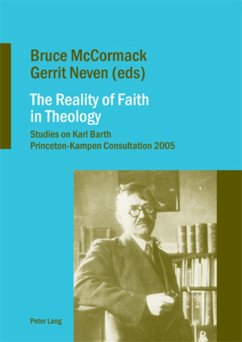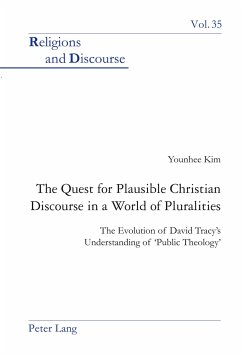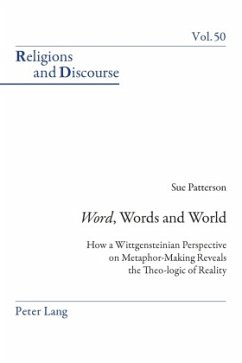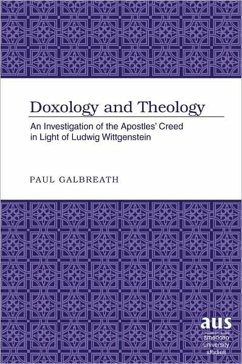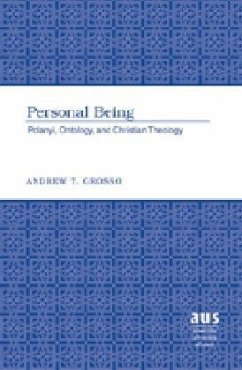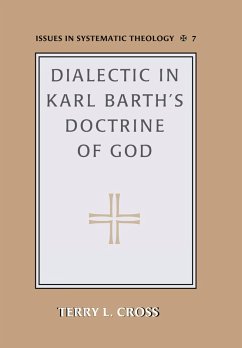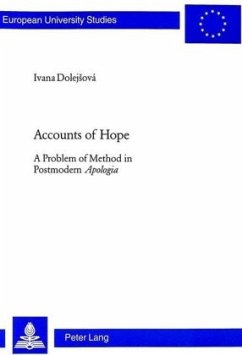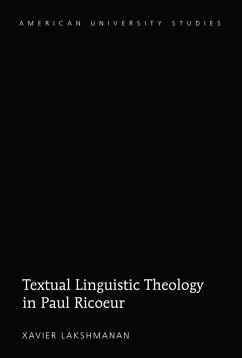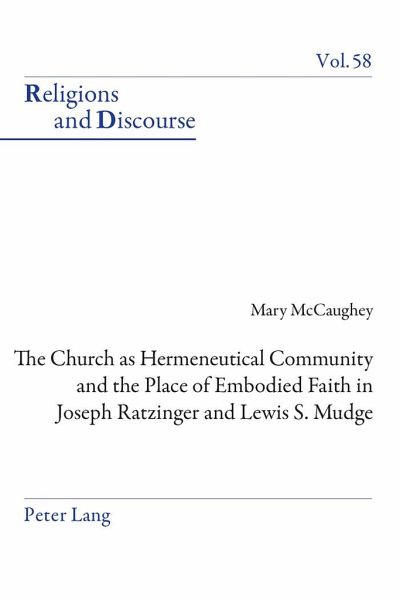
The Church as Hermeneutical Community and the Place of Embodied Faith in Joseph Ratzinger and Lewis S. Mudge
Versandkostenfrei!
Versandfertig in 6-10 Tagen
113,45 €
inkl. MwSt.

PAYBACK Punkte
0 °P sammeln!
This book adds new impetus to ecumenical theology by focusing on embodied faith or the contextual interpretation of Revelation. It does so through an exploration of the insights of Lewis S. Mudge and Joseph Ratzinger. Mudge advocates catholicity as a hermeneutic which embraces the contextuality of faith in local contexts, including Christian communities and the religious practice of those of other Abrahamic faiths. Through his use of semiotics and social theory, Mudge offers novel ways to interpret faith lived as redemptive existence. Since for Joseph Ratzinger Revelation can never be fully c...
This book adds new impetus to ecumenical theology by focusing on embodied faith or the contextual interpretation of Revelation. It does so through an exploration of the insights of Lewis S. Mudge and Joseph Ratzinger. Mudge advocates catholicity as a hermeneutic which embraces the contextuality of faith in local contexts, including Christian communities and the religious practice of those of other Abrahamic faiths. Through his use of semiotics and social theory, Mudge offers novel ways to interpret faith lived as redemptive existence.
Since for Joseph Ratzinger Revelation can never be fully confined to rational statements, it is nevertheless expressed in living praxis. This relates to his view of wisdom, Tradition, truth and the sensus fidei. Ratzinger focuses on embodied faith in Christian experience, the lives of the saints, New Ecclesial Movements and the plurality of different expressions of faith in synchronic unity.
This study encourages the reader to explore the Church as a sacrament of redemption through contextuality and embodiment. Through the writings of two authors with contrasting and yet complimentary approaches, it highlights the transformative potential of Christianity which can serve as a point of ecumenical learning.
Since for Joseph Ratzinger Revelation can never be fully confined to rational statements, it is nevertheless expressed in living praxis. This relates to his view of wisdom, Tradition, truth and the sensus fidei. Ratzinger focuses on embodied faith in Christian experience, the lives of the saints, New Ecclesial Movements and the plurality of different expressions of faith in synchronic unity.
This study encourages the reader to explore the Church as a sacrament of redemption through contextuality and embodiment. Through the writings of two authors with contrasting and yet complimentary approaches, it highlights the transformative potential of Christianity which can serve as a point of ecumenical learning.





